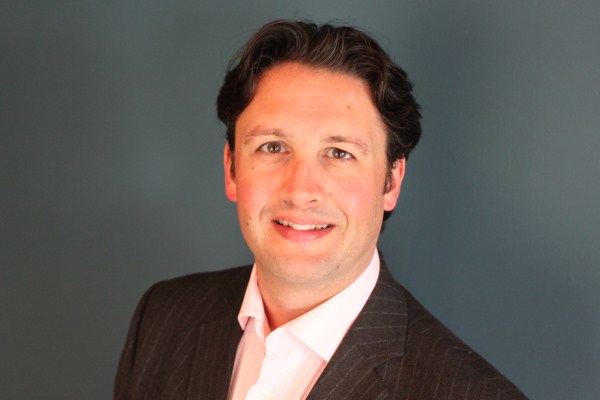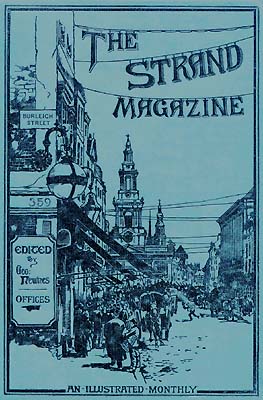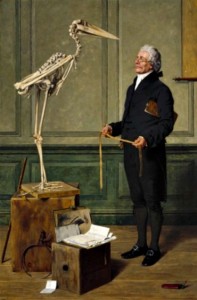-
Architecture
archive
art
Ballard
body
China
cinema
ecology
education
Europe
Ezra Pound
futurology
gothic
image
law
Literature
London
magic
memory
Modern
Modernism
museums
music
novel
performance
photography
poetry
politics
radical philosophy
science
science fiction
Sinclair
Situationism
sound art
Surrealism
technology
television
the avant-garde
The Future
Theory
thomson
time
Urban
visual culture
war
Posts tagged science
Martin Willis Professorial Lecture: Imagination & the Sciences, March 26
Tagged as Literature, science, technology

Wednesday 26th March 2014, 6pm
Fyvie Hall, University of Westminster, 309 Regent Street, London W1B 2HW
“Imagination and the Sciences, or, Why Frankenstein May Still Be the Modern Prometheus”
Professor Martin Willis (University of Westminster)
Two distinct but related themes have emerged in recent discussions of the relationship between the sciences and the humanities. First, there has been a sustained rejection in academic communities of the perceived dominance of the ‘two cultures’ debate that split scientific and humanist pursuits in the second half of the twentieth century. Second, and with a very different trajectory, political and institutional rhetoric has driven a wedge between the sciences and the humanities on the grounds of the utility and vitality of the former and the impractical passivity of the latter. Neither these themes, nor the positions taken, are entirely new, but their strange contemporary conjunction provides an opportunity to reconsider the long historical and present relationship between the humanities and the sciences from new perspectives. Looking backwards to the beginning of the nineteenth century as well as to the contemporary world, this lecture will consider the role of the imagination in knotting together the sciences and the humanities. In doing so it will consider the imagination not, as may be expected, as moments of inspiration or flights of fancy, but variously as a method for practice, as a cultural product, as political cache and as a mode of communication. Giving privilege to the imagination from a viewpoint somewhat aslant reveals networks and communities, both actual and of feeling, that illuminate the reductive nature of contemporary neo-liberal discourses and the detrimental effects of these on both the humanities and the sciences.
Professor Martin Willis was appointed to a Chair in Literature, Science and Communication in the Department of English, Linguistics and Cultural Studies in January 2013. Primarily a Victorianist, Professor Willis’s research has focused on the relationships between literary narrative and scientific writing and practice. His work has received international acclaim; his most recent book, Vision, Science and Literature, 1870-1920: Ocular Horizons was awarded both the British Society for Literature and Science Book Prize and the European Society for the Study of English Cultural Studies Book Prize in 2011. Professor Willis is a central figure in the field of literature and science: he was one of the original committee members who formed the British Society for Literature and Science in 2006; directed the Research Centre for Literature, Science and the Arts at the University of Glamorgan from 2006-12; founded the new Centre for Science and the Imagination at Westminster in 2013; and is editor of the Journal of Literature and Science.
Register online at: https://www.eventbrite.co.uk/e/inaugural-lecture-series-2013-2014-imagination-and-the-sciences-or-why-frankenstein-may-still-be-tickets-7899691189
Reminder: Cold War Systems Symposium, Feb 27th
Tagged as ecology, science, technology, Theory, war

The Continuities of Cold War Systems: A Symposium
Thursday 27th February 2014, 9am-6pm.
The Boardroom, University of Westminster, 309 Regent Street
Hosted by John Beck (Westminster) and Ryan Bishop (Winchester School of Art), participants include Ele Carpenter (Goldsmiths), Fabienne Collignon (Sheffield), Mark Coté (King’s), Dan Grausam (Durham), Ken Hollings (Middlesex), Adrian Mackenzie (Lancaster), Jussi Parikka (Winchester), John Phillips (Singapore), Adam Piette (Sheffield), Jennifer Pybus (Winchester), James Purdon (Cambridge), Aura Satz (London Consortium), Neal White (Bournemouth).
From the late 1940s through the 1980s systems analysis, cybernetics, and information theory came to shape military, business, government and academic thinking on a wide array of subjects. The influence of such thinking is also evident in the arts, from the so-called systems novels of the 1960s and 70s, to minimalist and electronic music, conceptual art, and the emergence of electronic media. The end of the Cold War did not end systems thinking; indeed, given the phenomenal expansion of computer technologies into every aspect of contemporary life it is fair to say that we are now living in a world imagined and engineered during the Cold War. This event seeks to address the ways the Cold War, particularly through a consideration of systems thinking, continues to shape the contemporary.
RSVP John Beck: j.beck@westminster.ac.uk.
Medics, Monsters and Mash-ups seminar, Nov 20th
Tagged as gothic, London, science, technology

Centre for the Study of Science and Imagination (SCIMAG) Seminar
Wednesday November 20, 3.30-5pm, Room 219 Wells Street
Medics, Monsters and Mash-ups: Gothic 2.0
Anthony Mandal (Cardiff University)
“Humanity 2.0 is an understanding of the human condition that no longer takes the ‘normal human body’ as given. On the one hand, we’re learning more about our continuity with the rest of nature—in terms of the ecology, genetic make-up, evolutionary history. On this basis, it’s easy to conclude that being ‘human’ is overrated. But on the other hand, we’re also learning more about how to enhance the capacities that have traditionally marked us off from the rest of nature.” — Steve Fuller, Auguste Comte Chair in Social Epistemology, Warwick.
At the end of November 2012, Anthony Mandal won a commission through the AHRC’s REACT Books & Print initiative. Since January 2013, he has been working as lead academic partner with Bristol-based creative company, SlingShot, on Jekyll 2.0: Embodying the Gothic Text, to create a pervasive media experience that draws on the narrative and themes of Robert Louis Stevenson’s gothic masterpiece, Jekyll and Hyde (1886). The core of the project addresses the fundamental questions of Jekyll and Hyde: What makes us human? Do our minds control our bodies or are we shaped by our urges, compulsions and appetites? Will technology radically transform us into a new organism, ‘Humanity 2.0’? Such questions are nothing new: during the 19th century, the cultural implications of emerging theories of identity and the dominance of science were explored by numerous works of literature. Drawing on the gothic tradition, the project transforms reading into play, using participants’ bio-data (breathing, heart-rate, galvanic skin response) to shape their experience in uncanny ways.
Jekyll 2.0 will be a location-based pervasive media adaptation of Stevenson’s novel, reclaiming its transgressive power and reframing its central themes for the age of the bio-hacker. Neither a game nor a story, Jekyll 2.0 adapts a classic literary book using 21st-century technology to explore whether ‘humanity’ is a stable and meaningful concept or simply a convenient construction. As such, it merges linear fictional ‘narrative’, the interactivity associated with street gaming and the technological uncanny of bio-sensory feedback. Anthony’s talk will offer an overview of how the project is merging contemporary bio-technology with classic gothic preoccupations in order to create an immanent experience intended to be both entertaining and thought-provoking. The talk will also reflect on the methodological and conceptual questions that are emerging from current debates on creativity and technology in the early twenty-first century.
Dr Anthony Mandal (mandal@cardiff.ac.uk) is Reader in English Literature at Cardiff University where he is also Director of the Centre for Editorial & Intertextual Research.
Expanded Territories seminar, Dec 5th
Tagged as Architecture, ecology, science, Theory, Urban
Thursday 5 December, 12.30 – 14.00
Room M324, 35 Marylebone Road, London NW1 5LS
Measurement as Argument:
Planetary Constructions, PostNatural Histories, and the Will to Knowledge
Seth Denizen, Anna-Sophie Springer, Etienne Turpin
Organized by Lindsay Bremner
In this Expanded Territories seminar, Denizen Springer and Turpin will consider the relationship among the construction of systems of thought, our knowledge of the Earth System, and what Michel Foucault, following Nietzsche, describes as the will to knowledge. By examining several key episodes in the mid to late nineteenth century, including Antonio Stoppani’s argument for an “Anthropozoic” era, Vasily Dokuchaev’s proposal for a soil science distinct from geology, Franz Wilhelm Junghuhn’s early cartography of Java, and Alfred Russel Wallace’s theory of biogeographical distribution, they observe how measurement as argument has advanced our understanding of the Earth system in its manifold complexity. Because these systems of thought are not given, but produced, they suggest “what real struggles and relations of domination are involved in the will to knowledge.” As the Anthropocene as an object of knowledge is being constructed by stratigraphers and geologists, a series of affinities connecting measurement, aesthetic practices and the production of evidence can be discerned. How measurement as argument will challenge our inherited views of the architectural object in the Anthropocene remains to be seen; what is evident already is that this will to knowledge frames both our perception of the world and our capacity to change it.
Seth Denizen is a designer and researcher who currently teaches in the Division of Landscape Architecture at Hong Kong University. Anna-Sophie Springer is a writer, curator, and editor and co-director of the independent press K. Verlag in Berlin, Germany. Etienne Turpin is the founder and director of anexact office in Jakarta, Indonesia, and author of Architecture in the Anthropocene, Encounters among Design, Deep Time, Science and Philosophy.
Staging Science events, Dec 6 and 7 2013
Tagged as cinema, London, museums, science, visual culture

Hosted by our colleagues in the new Centre for the Study of Science and Imagination, a series of exciting events on Staging Science in December:
Staging Historical and Contemporary Science: A Roundtable
Friday December 6, 2013, 6.30-8.00pm (drinks from 6pm)
The Boardroom, University of Westminster, 309 Regent Street
Jim Al-Khalili (Physicist, Science Communicator and Broadcaster)
Tim Boon (Head of Research, Science Museum)
Imran Khan (Chief Executive, British Science Association)
Katrina Nilsson (Head of Contemporary Science, Science Museum)
Jonathan Renouf (Executive Producer, BBC Science Unit)
Staging Science ColloquiumSaturday December 7, 2013, 9.00-6.00pm
The Boardroom, University of Westminster, 309 Regent Street
Speakers include: Iwan Morus (Aberystwyth), Daniel Brown (Southampton), Robert Kargon (Johns Hopkins), Jeremy Brooker (Independent Researcher), Tiffany Watt-Smith (Queen Mary), Kirsten Shepherd-Barr (Oxford), Jean-Baptiste Gouyon (Science Museum, London), Bernard Lightman (York, Canada), Martin Willis (Westminster)
6.00-7.00pm: Drinks Reception and Book Launch for Jeremy Brooker’s Temple of Minerva (Regent Street Building Foyer)
followed by
A Performance of the Pepper’s Ghost Illusion with Charles Dickens’s ‘The Haunted Man’
Produced, directed and performed by Richard Hand and Geraint D’Arcy (University of South Wales)
There will be 2 performances of the Pepper’s Ghost Illusion – 7.00-7.30 and 7.45-8.15 (The Old Cinema)
Places for all the events that make up Staging Science are limited. Please apply early for each event as below. In your email please make clear which event or events you wish to attend. Many thanks.
To reserve a place at the Roundtable (Friday evening) please contact Rebecca Spear on rebecca.spear@my.westminster.ac.uk
To reserve a place at the colloquium (Saturday day), which comes with an invitation to the Pepper’s Ghost performance (Saturday evening), please contact Rebecca Spear on rebecca.spear@my.westminster.ac.uk.
Please do advise Rebecca if you wish to come to the colloquium but are not able to attend the evening Performance.
To inquire about a place at the Pepper’s Ghost performance only please contact Professor Martin Willis on m.willis@westminster.ac.uk
For updates on Staging Science connect to SCIMAG’s blog site at: http://scienceimagination.wordpress.com
Modernity on Display: International Exhibitions seminar
Tagged as Architecture, Modern, Modernism, science, technology, visual culture

Modernity on Display: Technology, Science and the Culture Wars at International Expositions circa World War II
Thursday 4th April 2013, 4 – 7 p.m.
Boardroom, University of Westminster, 309 Regent Street, London W1B 2UW.
Speakers:
Professor Robert Kargon, Willis K. Shepard Professor of the History of Science, Johns Hopkins University, Baltimore.
Dr Arthur Molella, Director, The Lemelson Center, National Museum of American History, Smithsonian Institution, Washington DC.
International expositions are receiving significant attention from historians of science and technology, and of culture more generally. These complex events mirror ideological and national rivalries as well as domestic social, economic and political struggles. In short, they are remarkable indices of important historical tensions. Especially interesting are the international expositions planned and/or mounted just before the outbreak of the Second World War. These expositions reflected the political regimes of the host countries, and in some cases serious divisions within them. They also highlight increasingly tense ideological divisions between nations representing liberal or social democratic republics (France and the US), communist (Soviet Union) and reactionary modernist or fascist regimes such as Germany, Italy and Japan.
The book in progress on which this seminar will be based includes chapters about World’s Fairs and expositions from 1937 to 1942, drawing upon three actually built, Paris, 1937, Dusseldorf 1937 and New York 1939, and two planned in detail but, owing to the coming of war, never executed, Tokyo 1940 and Rome 1942. The presentations will use two examples – New York 1939 and Rome 1942 – to illuminate the representation of science and technology at these fairs as indicators of modernity as part of the on-going culture and propaganda wars preceding actual hostilities.
Organised by the Graduate School, University of Westminster
R.S.V.P. Sharon Sinclair, sinclas@westminster.ac.uk

The IMCC is delighted to welcome Martin Willis who is joining us this month as Professor in Science, Literature and Communication based within the Department of English, Linguistics and Cultural Studies at Westminster. Martin’s main research interests lie in the intersections between Victorian literature and science, in particular the literary imagination’s response to marginal sciences such as mesmerism and spiritualism, and by literature’s interrogation of scientific sites and conflicts, from the laboratory and seance room to debates in disease theory and vivisection controversies. He is also Editor of of the Journal of Literature and Science, a peer-reviewed journal dedicated to scholarship exploring the cross-fertilisation between literature and science across all literary periods.
Martin’s most recent book, Vision, Science and Literature, 1870-1920: Ocular Horizons, was published by Pickering and Chatto in 2011 and was winner of both the 2011 British Society for Literature and Science Book Prize and 2012 European Society for the Study of English Cultural Studies Book Prize. Drawing on science, technology, and literature, the book aims to analyse the interaction between science, sight and the literary imagination in order to understand better how vision was continually transformed as its boundaries were breached by scientific and technological innovation.

Wednesday 10th February, 1.15-2.30pm
Room 106, University of Westminster, 32-38 Wells Street, W1T 3UW
Jonathan Cranfield (University of Kent)
‘Veneers of Science: Science and Ideology in The Strand Magazine’
Free to all.


The Institute for Modern and Contemporary Culture
University of Westminster Department of English, Linguistics and Cultural Studies
32-38 Wells Street, London W1T 3UW. United Kingdom.

